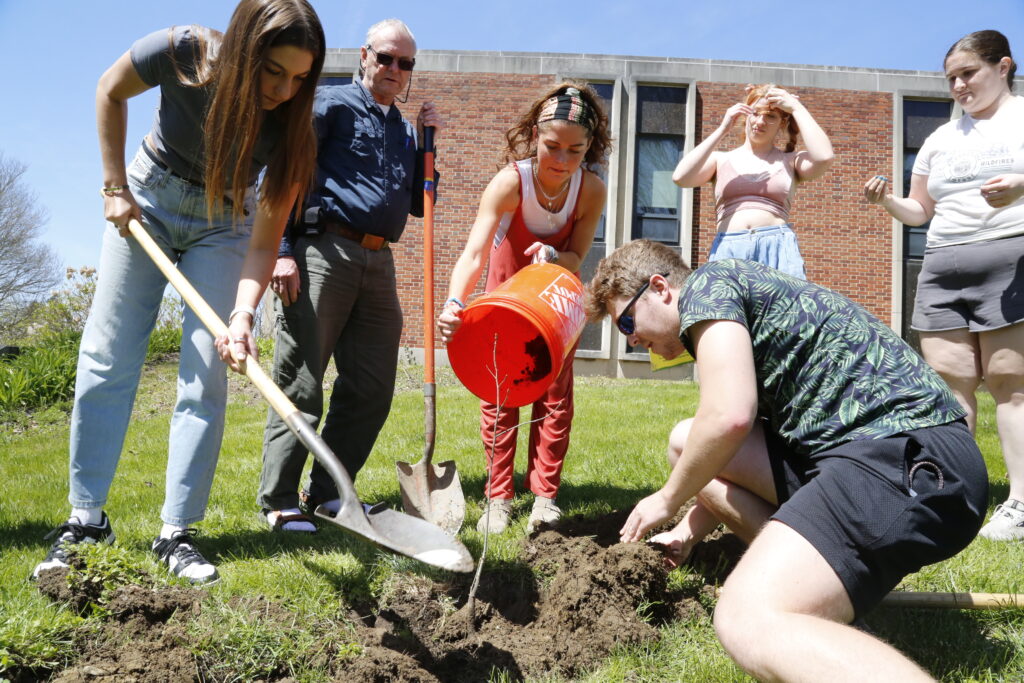
Dedicated to making a more sustainable campus, The Department of Environmental Science and Sustainability (ESS), Office of Sustainability, and Physical Plant Department collaborated on identifying and implementing restorative practices for a healthier campus.
- The National Wildlife Federation has recognized the campus’ ongoing efforts to conserve biodiversity— deeming it a certified wildlife habitat.
- The Arbor Day Foundation has recognized the campus’ commitment to trees and green space— qualifying it as a Tree Campus in Higher Education.
- Bee City USA, an initiative of the Xerces Society, has acknowledged the campus’ efforts to conserve native plants and reduce the use of pesticides— endorsing it as a Bee Campus.
Each acknowledgment gives students an opportunity to make the campus they call home a place to do hands-on, collaborative work in environmental education that will impact their immediate surroundings.
The designation of the certified wildlife habitat was specifically initiated through a combined student and faculty effort introduced in a junior seminar taught by Professor of ESS Rich Bowden and a research methods course taught by Assistant Professor of ESS Kelly Pearce.
“Our students are always thinking creatively and wanted to explore wildlife presence on campus, which hasn’t really been studied extensively. We wanted to formalize what we found and make an impact beyond our campus,” says Pearce. “This report serves as a blueprint to other higher education institutions, illustrating that collaborative efforts can yield outcomes that extend beyond the confines of the classroom.”
Kaitlyn Royal ’24, Ava Loch ’24, and Molly Miller ’24 served as student editors on the related wildlife habitat management plan that the National Wildlife Federation endorsed. It noted that the campus had adequate cover, food, water, places to raise young and active wildlife-friendly sustainability practices. Suggested improvements included:
- Continued removal of invasive species
- Planting more diverse native species
- Installing bat and birdhouses
- Leaving snags and fallen trees for habitat
- Enhancing water availability
Royal says, “Many environmental professionals helped us, and campus staff and faculty were so supportive of the process. There was so much encouragement and sharing of knowledge. The College’s Junior Seminar course was so helpful for me to see how projects are planned, executed, and connected to our campus life.”
One of those environmental professionals was Kristy Jones, director of higher education programs at the National Wildlife Federation.
“The National Wildlife Federation Certified Wildlife Habitat designation recognizes Allegheny College as a higher education leader in wildlife conservation and an important part of a national network of communities working to provide healthy habitat for wildlife and people,” remarks Jones.


